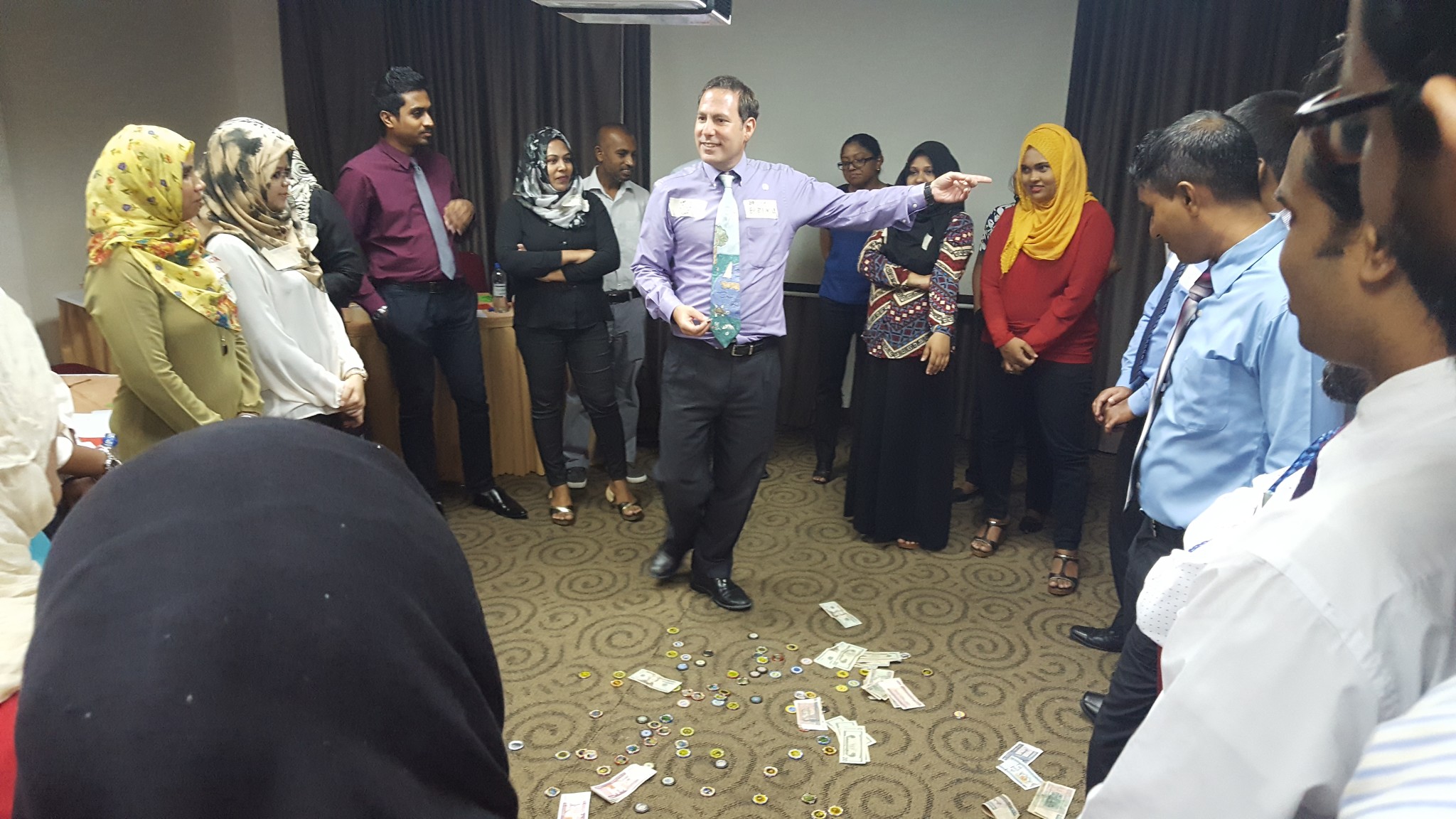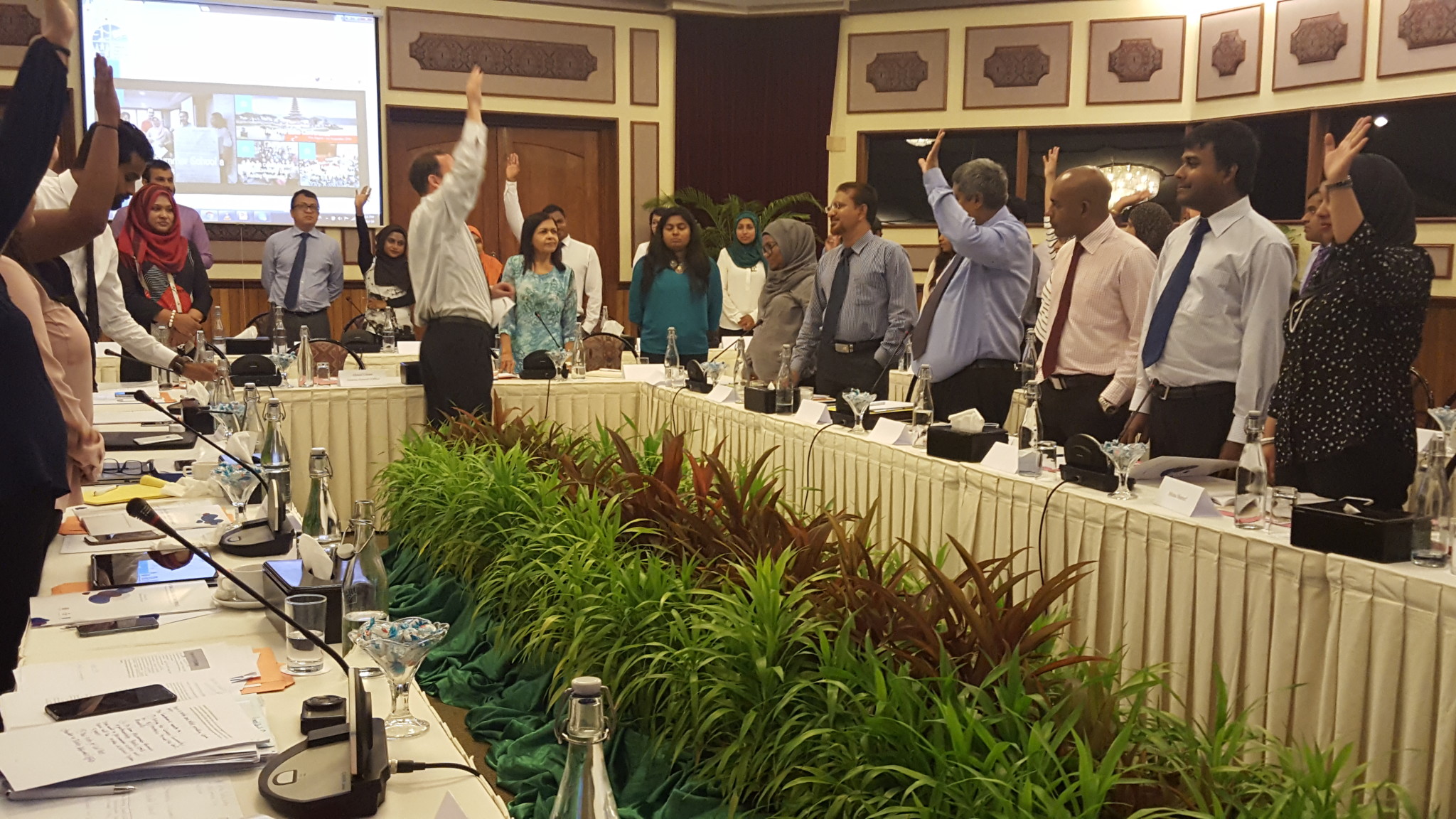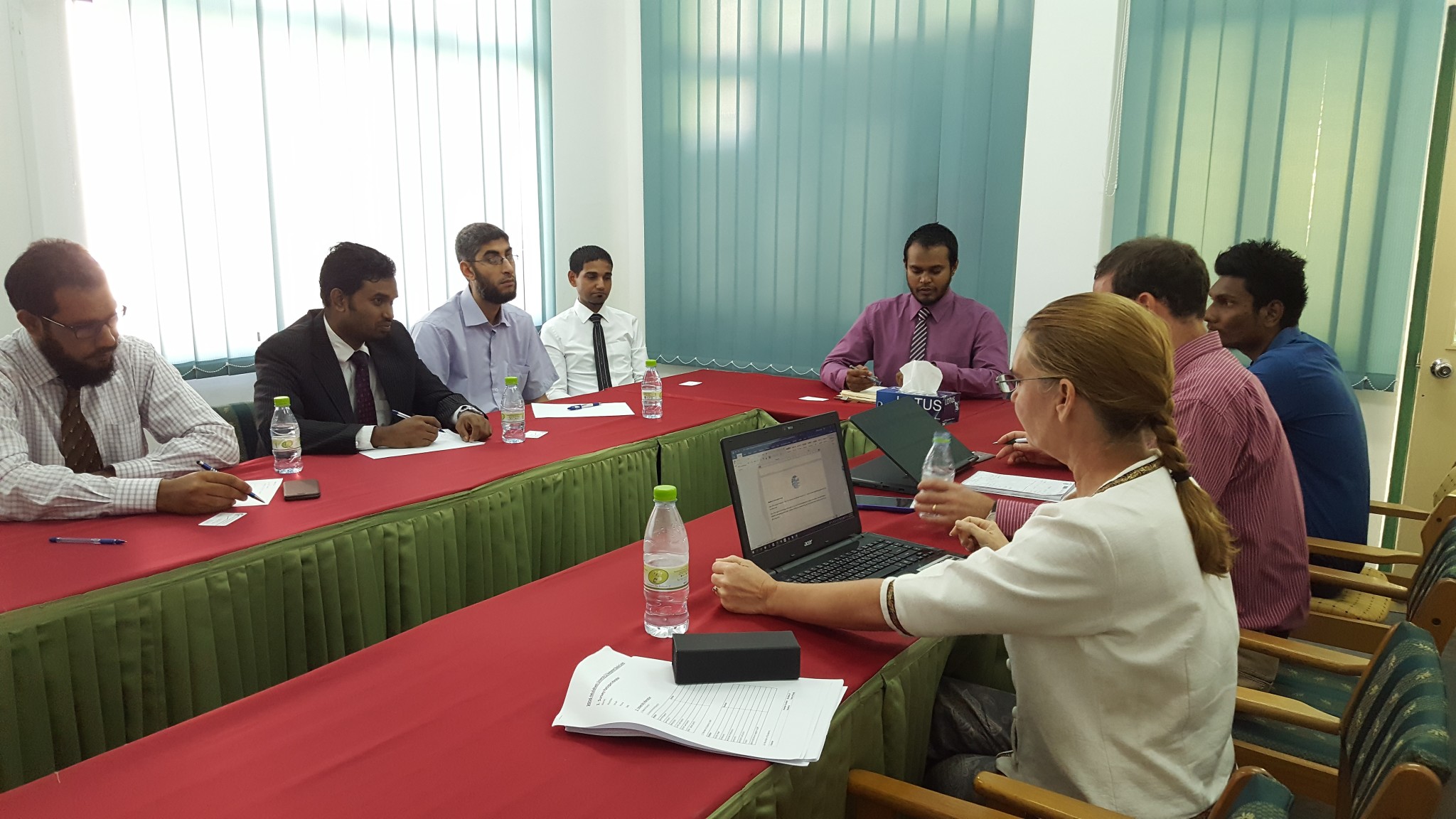When people think of the Maldives, access to justice and legal education is usually not one of the top things that come to mind. Rather, images of beautiful islands and turquoise water do, with restful vacations mixed in. While the Maldives, being the amazing paradise vacation resort that it is, has all of these things, this was not the prime focus for Bridges Across Borders Southeast Asia Community Legal Education Initiative’s (BABSEACLE) Co-Directors Bruce A. Lasky and Wendy Morrish when they went there for three (3) weeks in July-August 2016. Nor was it the top focus for Jonathan Liljeblad, a law professor and researcher in Australia, and long term pro bono volunteer with BABSEACLE. Rather, all of them, as team, went into the Maldives to explore the potential of Clinical Legal Education (CLE) development there.
This was done upon the request of the United Nations Development Programme (UNDP) to conduct an evidence-based baseline assessment in order to explore the feasibility of the development of clinical legal education (CLE) programmes at law training institutions in the Maldives. If deemed feasible, the Assessment was to include both means and methods recommendations to formulate plans to develop, implement and sustain relevant, at-scale, impactful CLE programmes, and the incorporation and use of CLE methods, which are locally contextualized to the needs and practices of the Maldives.
The evaluation scope (geographical coverage) included the central campuses of Maldives National University, Villa College and Islamic University of the Maldives, located in the capital Male. The scope also included Haa Alifu Kulhudhuffushi, where the regional campus of the Maldives National University is located. The evaluation involved the Consultant being a resource person at a workshop entitled National Legal Aid Conference “Pro bono initiatives: building partnerships in legal aid” and a main facilitator and trainer for a second full-day workshop that had the objectives of raising awareness about CLE programmes and create opportunities for future collaborations.
The Assessment analysis and methodology was based on a desk review of material and literature focusing on the access to justice and educational situation in the Maldives, literature and reports focusing on the development of CLE regionally and globally, field notes, interviews and survey questionnaires.
The findings to date have demonstrated that a number of legal training institutions in the Maldives have both the capacity and willingness to begin to establish CLE initiatives. Furthermore, the findings revealed a number of thematically relevant access to justice areas within the Maldives which could be appropriate focal points for such CLE models.
The type of CLE models to be initially implemented may vary but the recommendations contained in the Assessment on models to initially begin with include:
- The incorporation of CLE teaching methods into existing courses, including the integration of legal ethics
- CLE Externships programmes
- CLE In-House Consultation programmes
- CLE Community Teaching programmes
- CLE Simulation programmes
- CLE Mock Trial/Moot Court programmes
- CLE Community Legal Resource/Research programmes
- CLE Teaching Legal Skills programmes
Based upon BABSEACLE’s experience in assisting in the development of CLE programmes throughout the region, BABSEACLE found that the Maldives’ legal, social and educational environment presenting both a positive opportunity and a positive need for the development of CLE.
While the situation of each country has its own unique character, the current state in the Maldives is not unlike many other countries in the Asia region, and globally, which have successfully initiated and maintained a variety of CLE programme models, and infused CLE methods into their teaching courses. Various ways were identified that CLE could and should be incorporated into the Maldivian legal education system.
As well the Assessment identified both current and future planned law reform initiatives that could be synergistically aligned with the development of CLE in the Maldives. The Assessment further included a number of potential partnerships and collaborations.
The Assessment identified some of the primary concerns and challenges facing the initial development of CLE and provided suggested strategies of effective ways to overcome these potential obstacles.
Finally, the Assessment provided a number of targeted recommendations to government, universities/colleges, access to justice/rule-of-law actors and institutions, the private sector and UNDP/other donor/partner organizations in order to provide the support needed to develop and achieve the sustainable growth of CLE in the Maldives.
Going forward it is hoped that the Assessment and recommendations provided by BABSEACLE will provide a foundation in assisting the initial planning and implementation of CLE in the Maldives.
BABSEACLE was honoured to have been asked to be a part of this journey and are grateful to so many for making it happen.
By Bruce A. Lasky and Wendy Morrish (BABSEACLE Co-Founders/Co-Directors)



